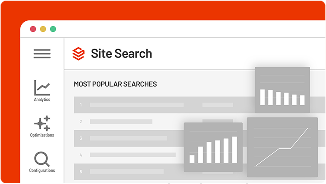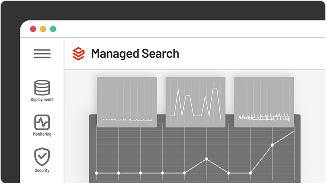Users are accustomed to a high-quality search experience, and they expect to quickly and efficiently find everything they’re seeking without any frustration.
The best practices for website search are important for all websites regardless of industry. When it comes to the websites of healthcare providers, here are some tips to keep in mind:
A variety of users will be looking to search on your site, so make sure that users can find your search bar easily. Users searching during an emergency or health issue may be emotional and unable to spend time looking around for what they need. A prominent search bar – on both desktop and mobile – is key here.
Again, users may be in crisis situations and auto-suggest can help with both saving time and giving users suggestions for phrases they may not be thinking of while searching quickly.
Even if users are just browsing for insurance forms or looking for information that is not time sensitive, typical users often haven’t spent much time on your site previously, so may not know exactly what they are searching for. Give users suggestions to minimize their typing.
Nothing is more frustrating than conducting a search and receiving outdated or non-relevant information. Website managers need to understand their search analytics and ensure that the relevant information is delivered for the top search terms. One way to test for this is to examine what search results are returned for your most popular searches and refine the search engine to increase relevancy.
Nowhere are synonyms as important as on medical websites. You say “cuts;” doctors say “lacerations.” Simplify and convert medical jargon into layman’s terms so that the correct content shows regardless of whether the website user has a medical degree. Setting up common synonyms for conditions or specializations will guide users to the results they want to see.
Let users narrow the search results with different filtering options so they can find the results that are relevant to them and avoid those that aren’t. For instance, you could offer filtering by location, or by age group: child, adult or geriatric.
Faceting also has the added benefit of allowing your server to run faster, as the filtering can segment out only a portion of documents to search through.
Let users narrow the search results with different filtering options so they can find the results that are relevant to them and avoid those that aren’t. For instance, you could offer filtering by location, or by age group: child, adult or geriatric.
Faceting also has the added benefit of allowing your server to run faster, as the filtering can segment out only a portion of documents to search through.
Similar to popular searches, showing alternative or related searches that have been performed by others and driven by machine learning will save website users time and get them more quickly to the answers they demand.
Remember that many users will be on mobile devices. The search feature needs to be easy to use and deliver fast, relevant results regardless of what device users are using to search your healthcare website.
After setting up the site search, website owners must pay attention to their search analytics. Understanding what is being searched for and how content is performing is critical to delivering a better search experience. Looking at no result searches can uncover content gaps or identify ways to make key information, like forms or community health updates, easier to find.






